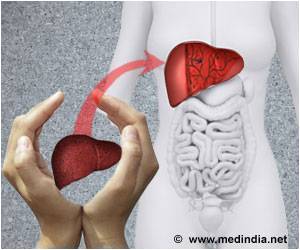Liver fibrosis can now be diagnosed and assessed for severity using a cost-effective blood test known as Enhanced Liver Fibrosis.

‘ELF blood test is a cost-effective method assessment of the degree of liver fibrosis. It help diagnose patients with mild-to-moderate liver fibrosis, thus preventing further damage.’





The National Institute for Health and Care Excellence (NICE) issued
evidence based guidelines recommending the use of the Enhanced Liver
Fibrosis (ELF) blood test to test and monitor advanced liver fibrosis in,
people diagnosed with Non Alcoholic Fatty Liver Disease (NAFLD).The discovery of the ELF markers represents a significant advance in the diagnosis of patients with liver disease. Of particular benefit, the ELF test can help diagnose patients with mild-to-moderate liver fibrosis, which is usually asymptomatic, so that clinicians are able to intervene before significant damage to the liver occurs." said William Rosenberg, MD, Centre for Hepatology, University College London.
The ELF Blood Test combines three serum biomarkers, which have been shown to correlate to the level of liver fibrosis assessed by liver biopsy. These biomarkers include are hyaluronic acid (HA), procollagen III amino terminal peptide (PIIINP) and tissue inhibitor of metalloproteinase 1 (TIMP-1).
The algorithm measures each of these markers by immunoassay, to create an ELF Score. This score classifies mild, moderate, and severe fibrosis. The ELF Blood Test can be performed in a physician’s office or health center.
Source-Medindia














